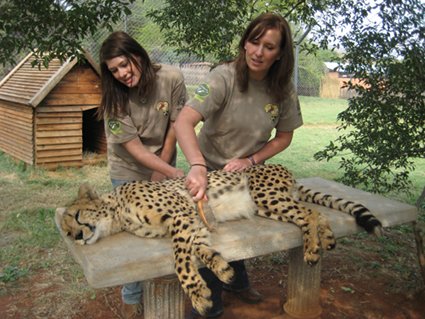Does it really help out?

Within the Millennial generation, and to be honest, those who come after us, we've created a lot of things for ourselves. With the influx of technology destroying our own ability to spell and use proper vocabulary, one of the great inventions is Urban Dictionary, a website defining our slew of ridiculous, made-up words. According to said site, one new phrase to pop up in the word bank is voluntourism, defined as “an act carried out by “voluntourists,” [where] hordes of – generally- the great unwashed backpacker brigade descend on a place to have a jolly nice holiday – usually at precious little cost to themselves – and do the occasional bit of good work.” The examples aren't much prettier, stating things like “[Voluntourims] looks good on one’s CV as a gap year activity.”
While multiple definitions appear on the site (anyone can put one up, and people vote on whether or not they like the definition), the idea behind mixing travel and volunteering is a new occurrence that seems to be here to stay. Is this new trend actually helpful to those receiving the free aid, or are the short-term actions and projects of the privileged actually making a bad impact on the local community?
One interesting article I've come across is by a man named J.B Mackinnon, who works in Malawi. His article called The Dark Side of Volunteer Tourism gives a great look into the entire culture. The article takes an in-depth look at a person working for a long-term project in a struggling country, and his interactions with backpackers who are stopping by for a week or two and working on short-term projects.
Mackinnon states how, “Poolside in Lilongwe, the conversations were more finely tuned: Whom have you helped? How have you grown?” and goes on to state how certain aspects of living and work made some people “better,” than others. The article also talks about locals both reacting negatively and positively to westerners coming to local spots for a drink, as well as trying to film and show daily life of the locals.
While the article itself is completely quotable, the opening statement of the article, where Mackinnon is asked, “What organization are you with?” really sheds an interesting light on the entire happening. While traveling in places like Africa or India, it has almost become standard practice to volunteer somewhere as part of your trip.
If you are going to be leaving your cushy home in the west to travel in the developing world then for some, it seems mind boggling that you wouldn't offer up your time for those in need. The mentality that is emerging seems to be, “Why would a person choose to go on vacation in these poor countries unless they are going to help?” This, in my opinion, is where the problem exists.
While I’m no professor, nor recipient of a PhD, I am a person who loves to travel, studied international development, and has spent the last six years long-term volunteering or working for international aid organizations. I’m a person who has more than a basic, working knowledge of sustainable aid, and I've been able to sit in on more than enough meetings of NGO boards and executives to know how intricate long-term solutions to development can be.
I think the idea that a person with little to no knowledge of development can waltz into a country and make a positive impact is ludicrous. Much like I wouldn't want any person other than a doctor to advise me on health, I wouldn't want a non-professional calling the shots on aid work while gallivanting through the developing world. It may be a cynical take, but the fact is good intentions don’t always lead to good outcomes. Short-term stints working in aid can be more detrimental than beneficial.
While I’m not a fan of voluntourism, I think travel is a tremendous opportunity to make a positive global impact. A few weeks ago I wrote a piece about why a person can make a greater difference traveling than volunteering if they choose to do it locally. Isn't our time and money the best thing we have to offer if we aren't trained in development?
Staying at local hotels or hostels, eating local meals and booking tours and other adventures through local agencies puts money into the local economy, creates jobs and encourages entrepreneurial enterprise. This is in direct contrast to giving away things for free with no added aspect of economic growth. Traveling has the potential to create mutual gain for both locals and visitors alike.
While I’m not telling people to go out and never volunteer, what I am saying is good enough isn't always better than nothing. If we actually want to see development occur in a positive and sustainable manner, we need to see it carried out correctly. Leave the real work up to the professionals and instead, travel in a way that aids local economies instead of foreign investors. Sustainable travel is the best way for regular folks to make a huge difference.
Image courtesy of Africa Freak

4 comments